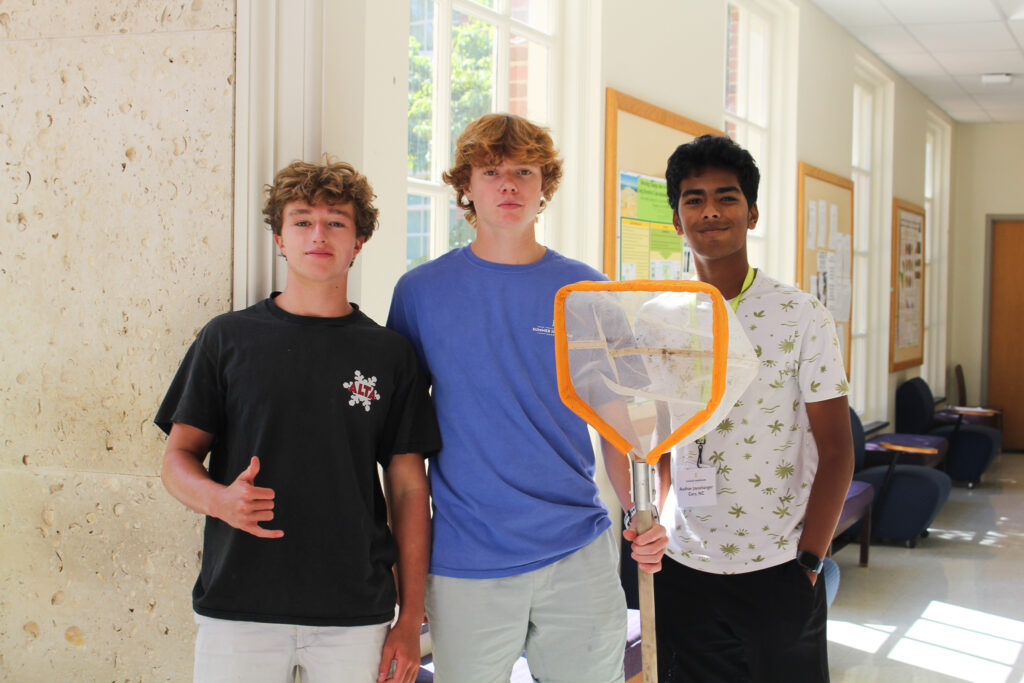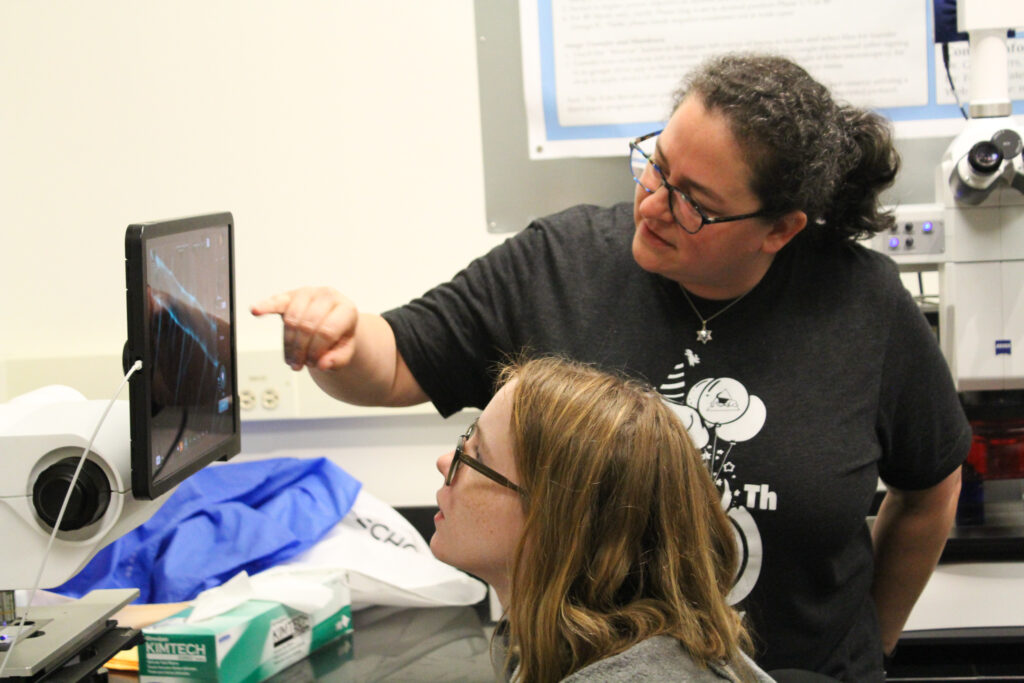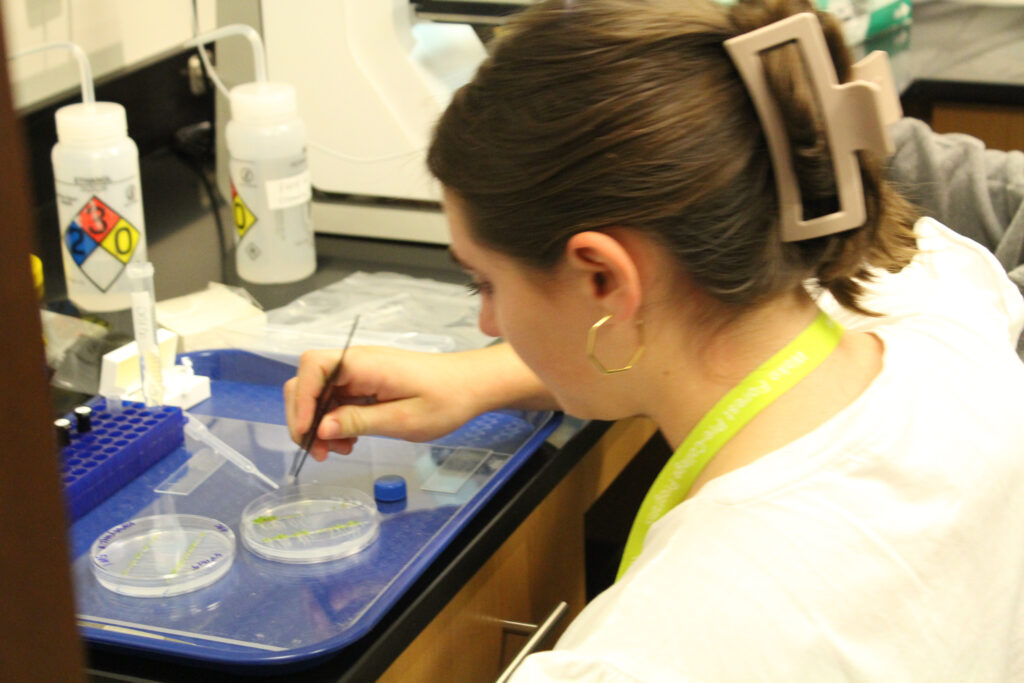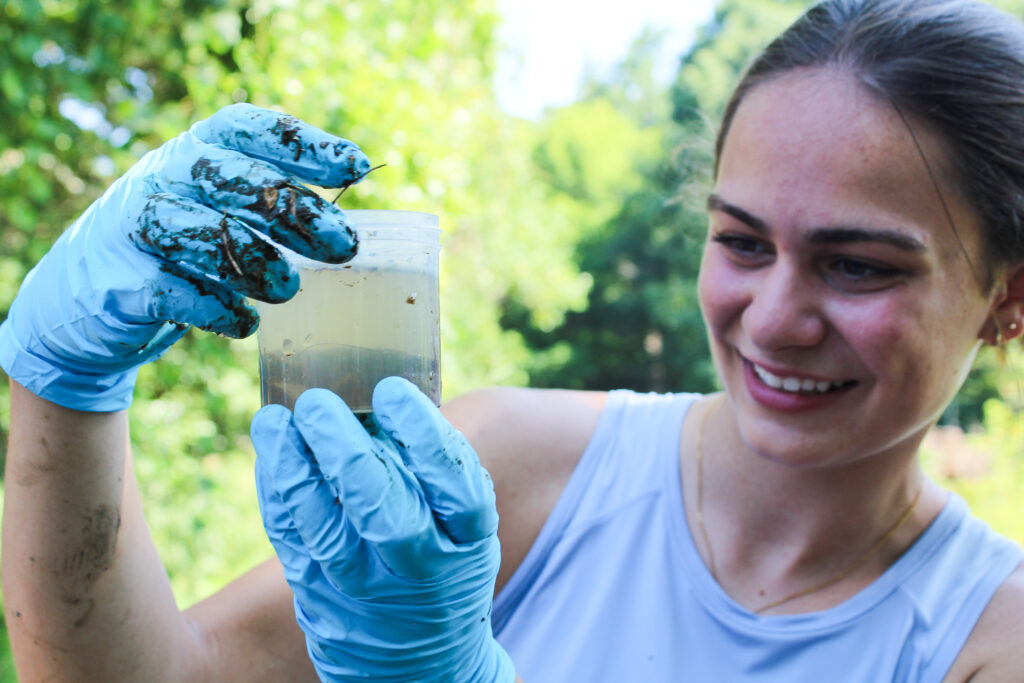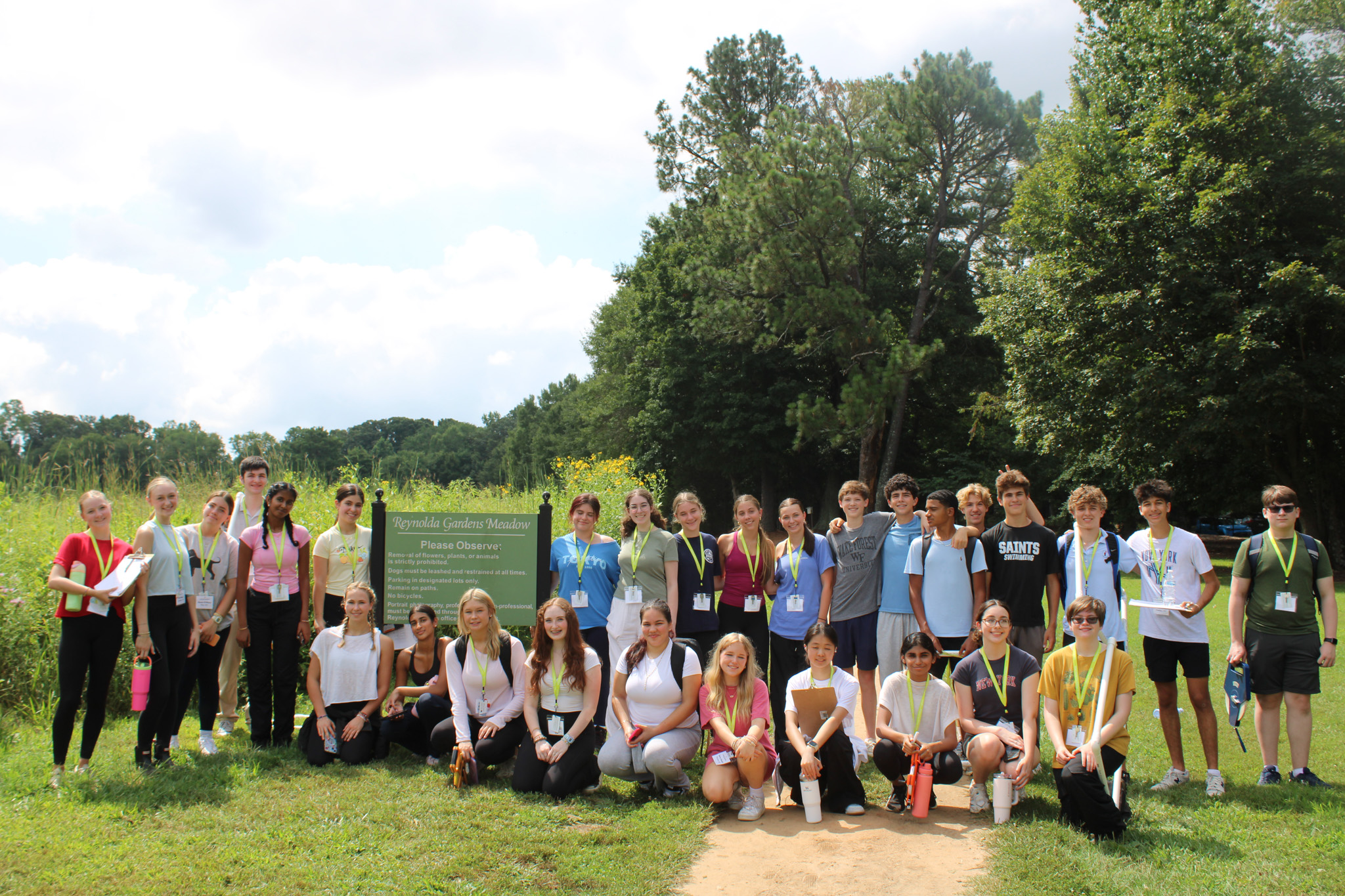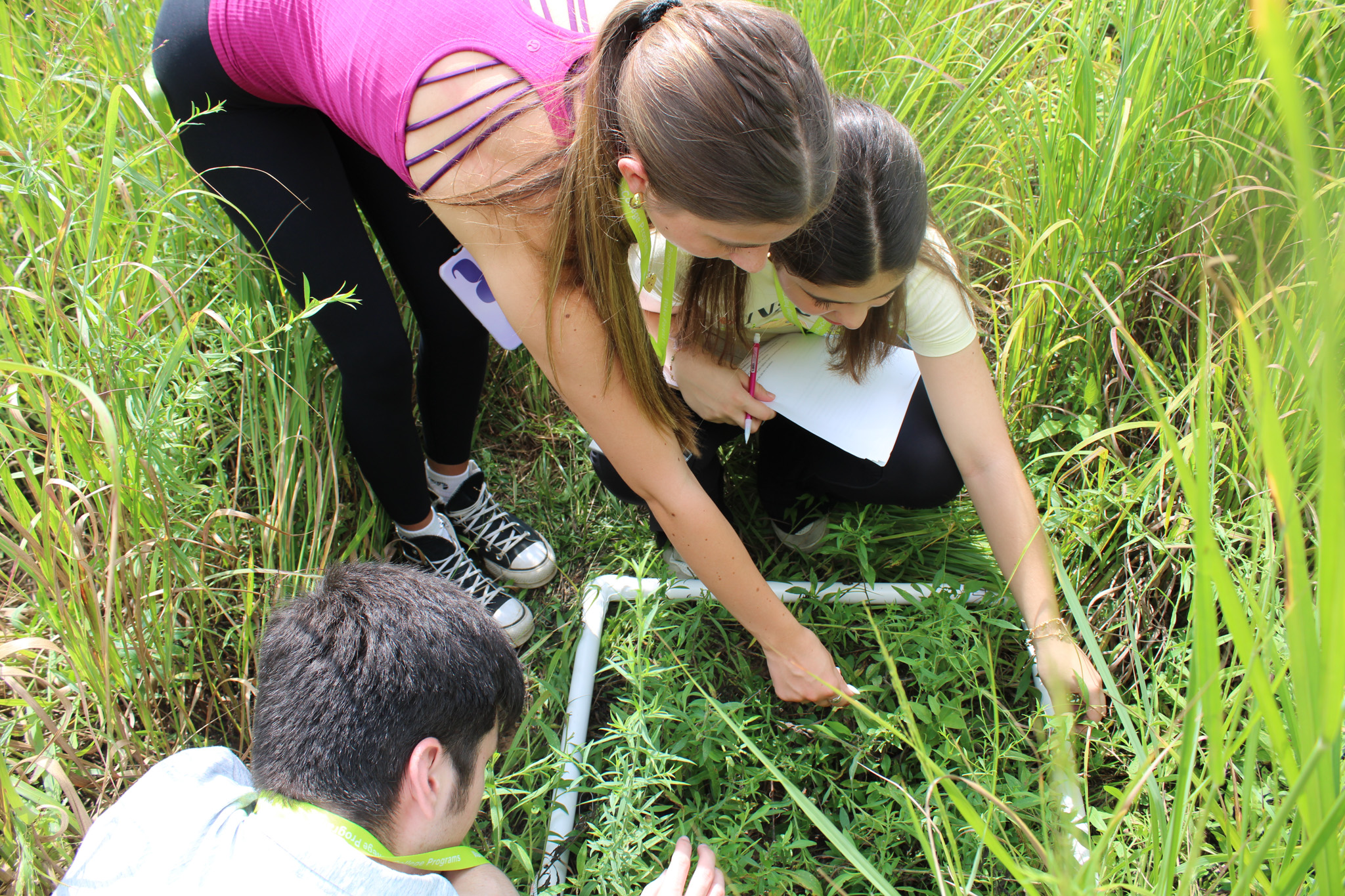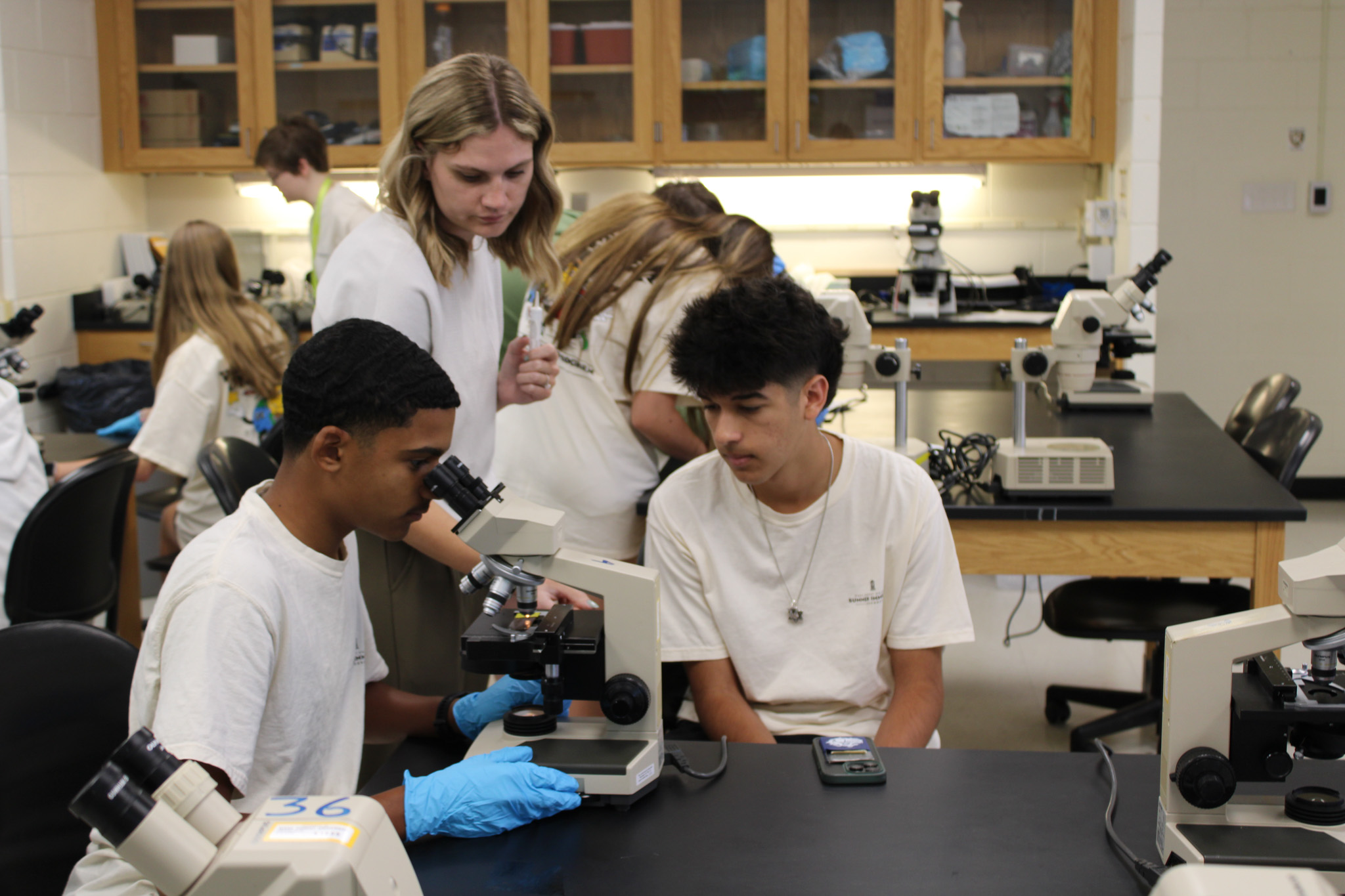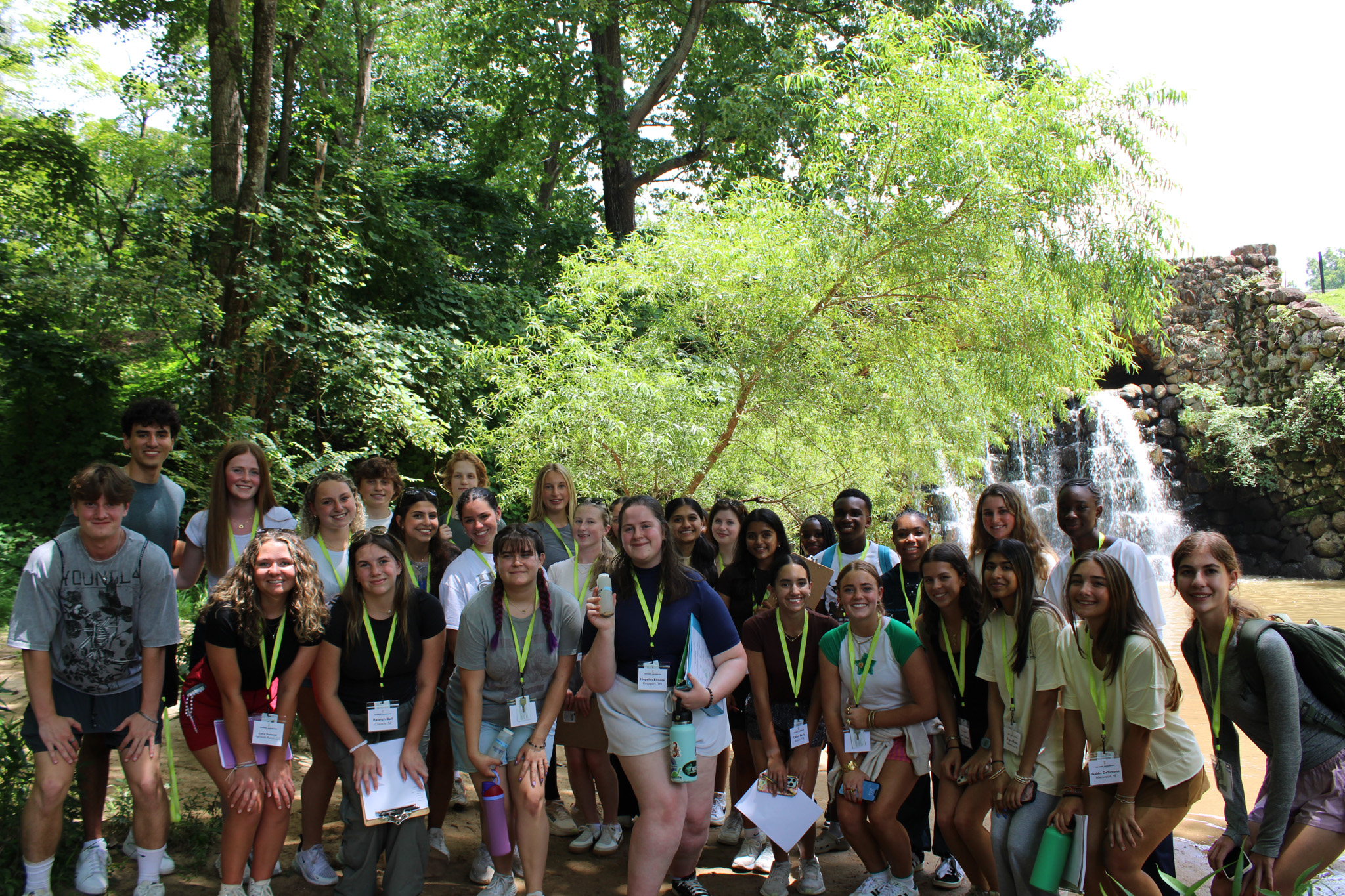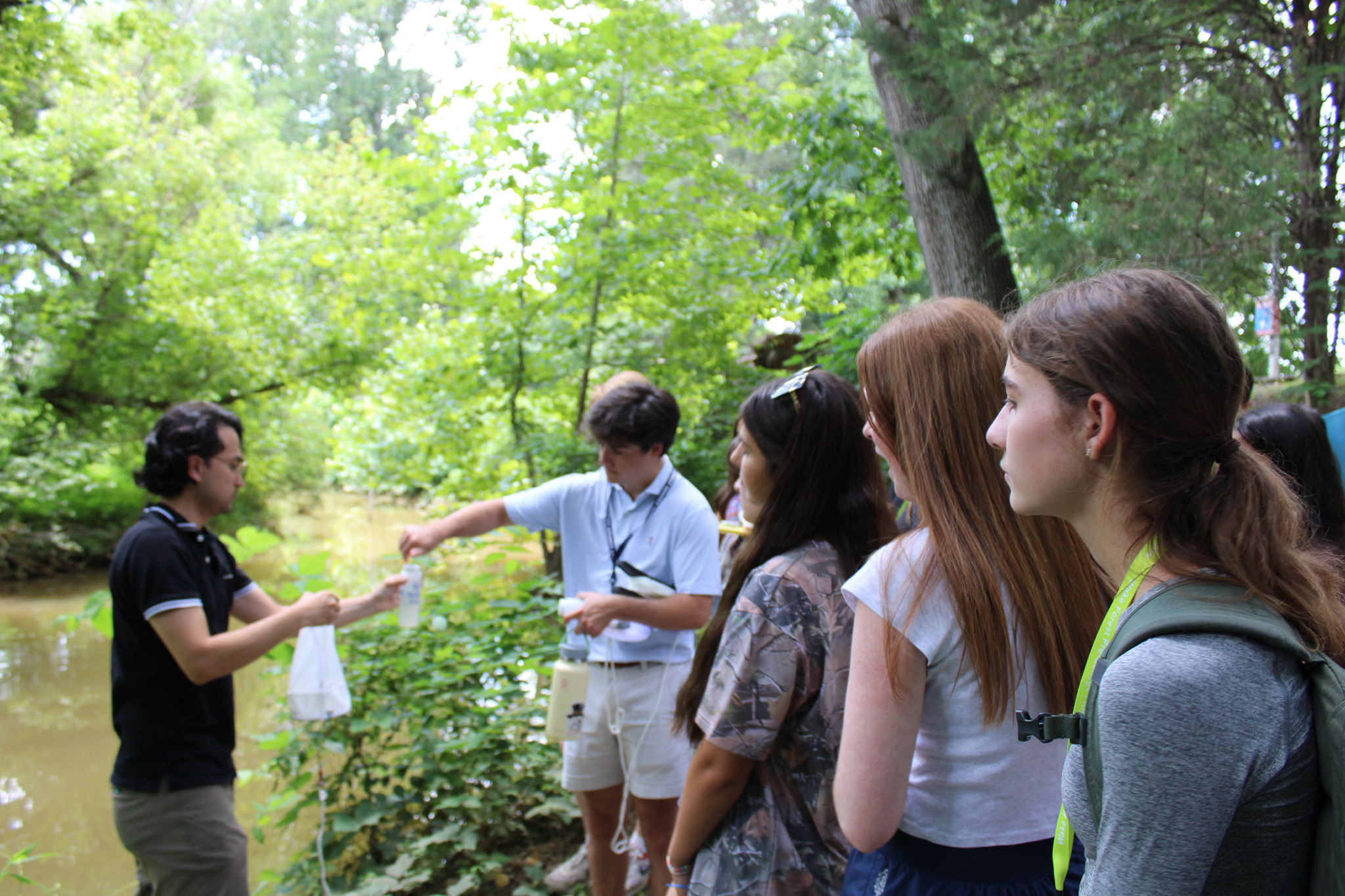Biology Research Institute
Explore the dynamic world of biology through cutting-edge research.
The Wake Forest Summer Immersion Biology Research Institute offers high school students a rare opportunity to explore diverse biological research fields. Using hands-on laboratory and field work experiments, this program will immerse students in the many components of biology research. Participants will interact with experts and leaders in different areas of biological research each day to learn cutting-edge techniques and to engage with ongoing scientific research projects. Participants will explore how biological studies connect on micro and macro levels, examining global change from the smallest organisms to vast ecosystems. Students will formulate questions, learn various benchtop and field techniques, collect their own data, and present their findings to their peers. This program offers a comprehensive look at biology, sustainability, scientific research, global change, and more.
At a Glance
2026 Dates: Week of July 5-10* and week of July 19-24*
*Both sessions of the Biology Research Institute have implemented a waitlist. Students may still register for one or both waitlists once admitted, or choose to register for a similar institute or Online Immersion course.
Program Length: Sunday – Friday, overnight
Tuition: $3,500
*Tuition is subject to change per year
Location: Winston-Salem, NC – Wake Forest University Reynolda Campus
Who Can Apply?: Current 9th – 12th grade students
*Courses carry no secondary school or college credit. Upon completion of the program, an official Wake Forest University Certificate of Completion will be awarded to all Biology Research Institute participants.
What You’ll Experience
Topics Covered:
- Plant hormonal development
- Disease biochemistry
- Floral ecology
- Global Change biology
- Sustainability research
- Community assembly
- Experimental design in a biological context
- Cutting-edge laboratory and microscopy techniques
Hands-On Experiences:
- Participate in lab-based experiments focused on molecular plant growth
- Study the biochemistry of mosquito-borne diseases like malaria
- Conduct ecological fieldwork, analyzing the biodiversity of grasslands
- Learn to use state-of-the-art microscopy equipment
- Work with PhD-level researchers on concrete studies examining global change
*Hands-on experiences are subject to change.
A Day in the Life
Typical Daily Schedule
- 8:00 am – Breakfast
- 9:00 am – Program Introduction
- 9:30 am – Topic: Vector-borne Diseases
- 10:00 am – Fieldwork: Sampling Mosquitos
- 10:30 am – Lab: Red Blood Cell Morphology
- 12:00 pm – Lunch
- 12:45 pm – Travel to Fieldwork Site
- 1:15 pm – Microscopy: Mosquito Identification
- 3:30 pm – Guest Speaker: Biochemistry of Malaria
- 4:10 pm – Team Research Presentation: Sampling Results
- 4:30 pm – Debrief and Reflections
- 5:30 pm – Dinner
- 6:30 pm – Evening Activities
- 7:30 pm – Free Time
- 9:00 pm – Prepare for Bed
- 10:30 pm – Lights Out
*The “A Day in the Life” sample schedule is subject to change.
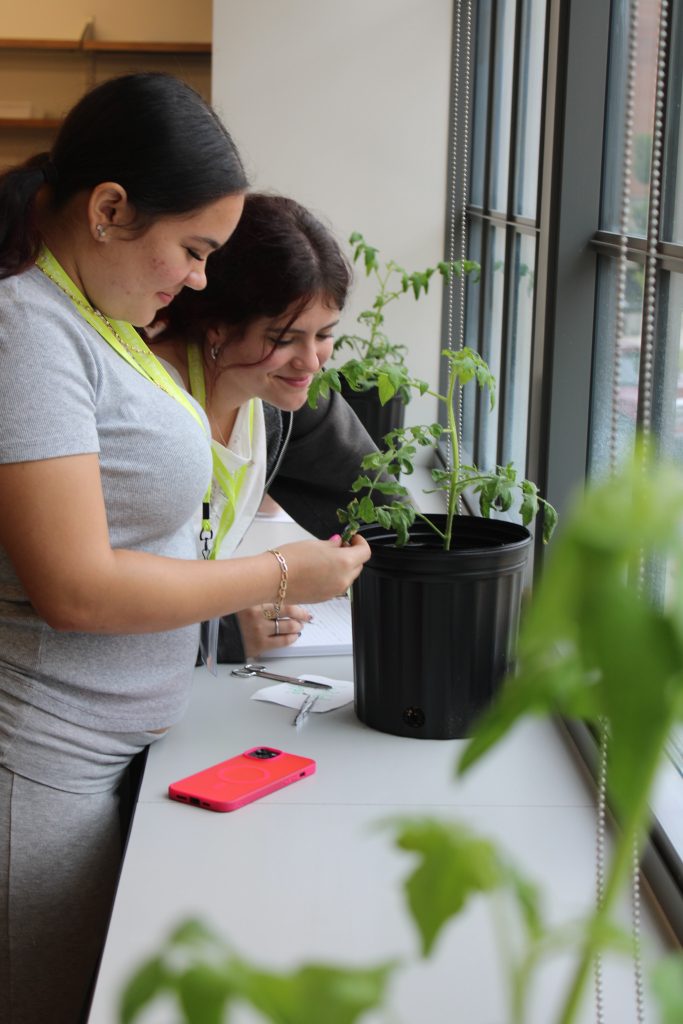
Meet the Academic Leader and Graduate Instructors

Dr. Anna Parker
Academic Leader, Biology Research Institute
Dr. Parker is an Assistant Teaching Professor in the Biology Department at Wake Forest University, where she teaches Field Biology and Evolution. Dr. Parker received her PhD in Biology from UNC-Chapel Hill in 2023, her MS in Zoology from the University of Wyoming in 2019, and her BS in Biology and BA in Chemistry from the University of Rochester in 2016. Dr. Parker researches the effects of global change on plant-insect interactions, and her teaching centers evidenced-based practices that improve equity, inclusion, and access.

Cam Sherlock
Graduate Instructor, Biology Research Institute
Cam is a PhD student in the Biology Department at Wake Forest University. He is a microbiologist that studies how disease causing parasites interact with their hosts. In particular Cam’s research focuses on Plasmodium parasites that cause malaria and infect millions of people each year. Malaria parasites live inside human red blood cells and he studies how the nutrients the human host has affects the severity of disease.

Nina Bravo
Graduate Instructor, Biology Research Institute
Nina (she/they) is a 3rd year Ph.D. student in the Muday Lab, studying how tomato flowers survive heat stress. She focuses on how flavonols protect their female reproductive tissues during fertilization.
